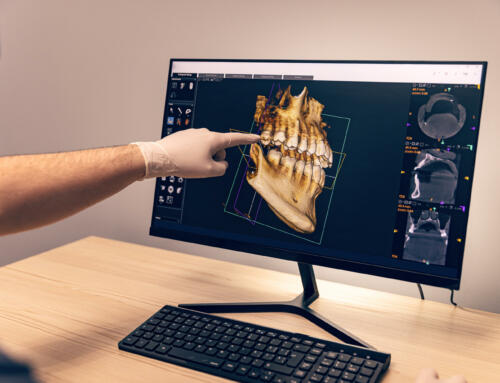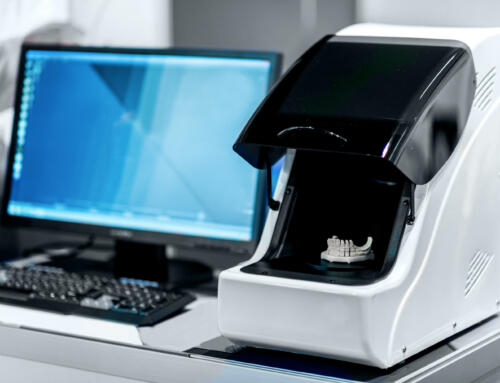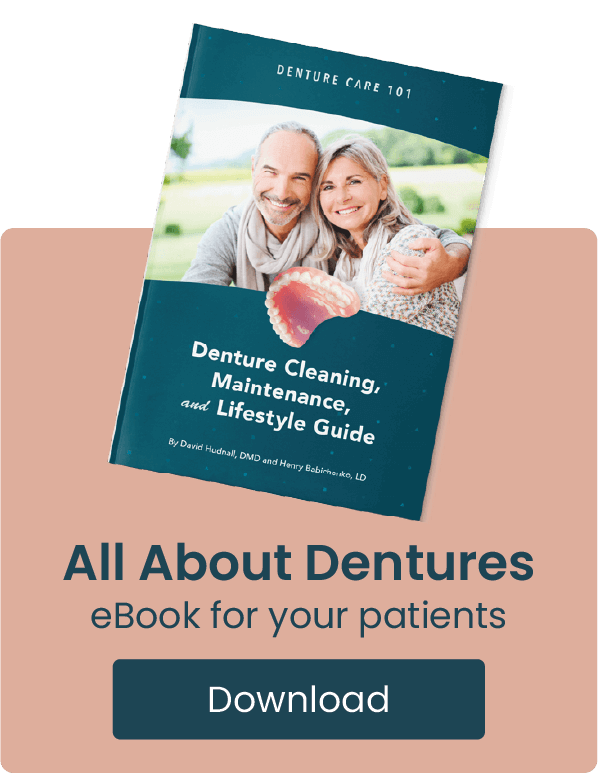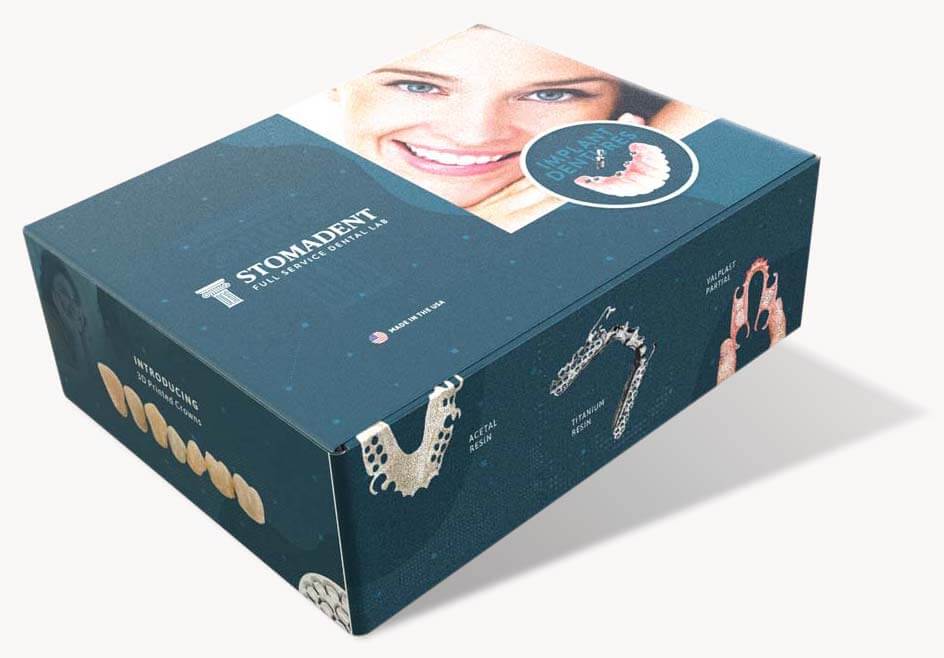
By David Hudnall, DMD
Stress and anxiety, a reality of living in today’s modern world, often take their toll on our physical health and our overall well-being. Symptoms of stress are often expressed as some physical manifestation with negative consequences ranging from headaches, muscular tension, depressed immune response, chronic inflammation, and even parafunctional habits, including clenching and grinding of teeth.
While occlusal splints do address the symptoms of stress and anxiety related to the masticatory system, many patients find them to be bulky and too intrusive to wear faithfully. Besides bite guards and occlusal splints, what other options do dentists have to help alleviate pain and prevent the patient from unknowingly damaging their own teeth?
What Are NTI Appliances?
What is an NTI appliance? It’s not the sort of thing that the general public understands. For that matter, dental professionals may have heard of them but may not fully understand the uses or when to prescribe one.
NTI is a shortened abbreviation for Nociceptive Trigeminal Inhibition Tension Suppression System (NTI-TSS). It is a small acrylic occlusal splint that is customized to fit over two upper or four lower anterior teeth and is generally used while the patient is sleeping. Many patients find it to be a more comfortable replacement for a full-arch occlusal splint that is designed to prevent tooth grinding by fitting over all of the teeth in a single arch.
What Are NTI Appliances Used for?
An NTI dental appliance is a type of anterior bite stop that can be worn by anyone with a history of symptoms related to stress and anxiety. It prevents the posterior teeth from touching and is indicated for the treatment of bruxism, temporomandibular disorders (TMDs), and tension-type headaches.
Plus, it is the only FDA-cleared appliance approved for the treatment of migraine headaches. By reducing muscle contraction intensity during parafunctional activity, NTI therapy can protect the teeth and minimize tooth wear, reduce joint and disc strain, decrease muscle tension leading to fewer morning headaches, and reduce migraines in number and severity.
NTI Appliance Benefits
There are a number of documented benefits obtained from prescribing and using an NTI dental appliance.
Small Size, Big Relief
An NTI dental appliance is by far the smallest type of occlusal splint available. Patients appreciate the device because it fits comfortably over only a few teeth, as opposed to most other night guards, which cover an entire row of teeth.
Some former wearers of traditional occlusal splints have reported improved tension relief after using an NTI appliance for TMJ because the posterior teeth are completely dis-occluded and do not receive any type of guidance sliding against an acrylic posterior stop.
Rapid Muscular-Related Pain Relief
By providing a barrier between the upper and lower teeth, the NTI appliance for TMJ allows the temporomandibular joint to rest and the surrounding muscles to relax, providing almost immediate relief from stress-induced facial pain, referred pain, and headaches related to facial pain. It may also be used as an emergency device for patients with acute temporomandibular pain and temporarily restricted jaw opening.
Prevents Bruxism and Tooth Damage
Both occlusal splints and NTI appliances prevent the damaging effects of bruxism. The biggest difference between an NTI device and an occlusal splint is the NTI dental appliance helps by working as behavior modification therapy.
By constantly interrupting the patient’s unconscious efforts to bite down, the device re-trains the muscles to stop clenching. As the muscles are trained to relax, bruxism habits are changed. With time, it is possible to break the cycle of clenching the jaw muscles when not wearing the appliance.
Like anything else, there are two sides to every coin. In spite of the benefits that have been highlighted here, NTI therapy is not immune to concerns and may not be appropriate for every dental patient.
Side Effects and Drawbacks of NTI Appliances
Critics and naysayers of the device point out that the NTI mouthguard can induce some unpleasant side effects and drawbacks. Here are a few negative effects of NTI appliances.
Impact on the Patient’s Bite
Because the NTI device is not a space maintainer, wearing the appliance every day or every night for an extended length of time can lead to teeth shifting or extruding, altering the patient’s bite. In rare circumstances, repetitive overuse of the device can lead to an anterior open bite, a type of malocclusion that is quite difficult to correct, in approximately 5% of the patients who wear NTI appliances.
Therefore, it is imperative that NTI device patients be monitored at regular intervals by a dental health professional. Using it without proper oversight can actually cause bruxism to become worse if the bite doesn’t interlock properly.
Healthy Teeth and Gums Are Required
The NTI device is not suitable for everyone. Patients who have damage to their front teeth, an atypical bite, teeth with mobility, or are affected by periodontal disease should not be prescribed this appliance. In addition, patients with degenerative arthritis or displaced disks of the TMJ are not appropriate candidates for the device as its use can actually exacerbate symptoms.
Possible Choking Hazard
While the small size of the NTI appliance is infinitely more comfortable for many patients compared with a full-arch splint, it is possible for it to become a choking hazard if the tongue dislodges the device during sleep, leading to aspiration.
Although this is an extremely rare occurrence, it is essential that the NTI dental appliance fits snugly and securely to the teeth so that it cannot become dislodged during parafunctional activity.
Cost of NTI Appliance Treatment
The cost of an NTI therapy to patients can range from $400 to $700, depending on the case and geographic location. Cheaper do-it-yourself knock-offs purchased online or elsewhere often don’t fit correctly and can lead to unpredictable outcomes.
While the price of professional treatment can sound pricey for a piece of plastic designed to separate the teeth, the device must fit very precisely in order to function properly. The cost for services is minimal compared to alternative treatments such as orthodontics, physician fees for headache specialists, or other migraine treatment options. A dentist will prescribe and provide the follow-up care necessary to ensure that the device is addressing your specific concerns.
Bite Therapy Appliances for All
Stomadent Dental Laboratory is your professional source for CAD/CAM-designed and produced removable dental appliances that fit correctly the first time, saving the clinician frustration and valuable chair time at delivery. See the complete line of offerings available by visiting our website, Stomadentlab.com.

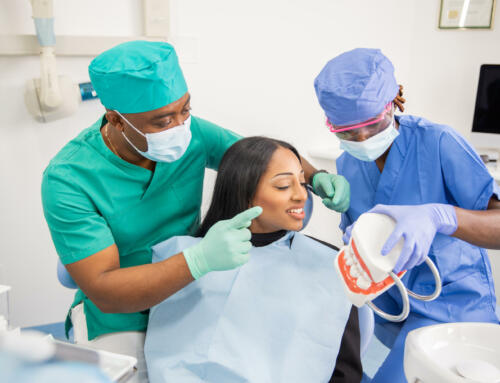
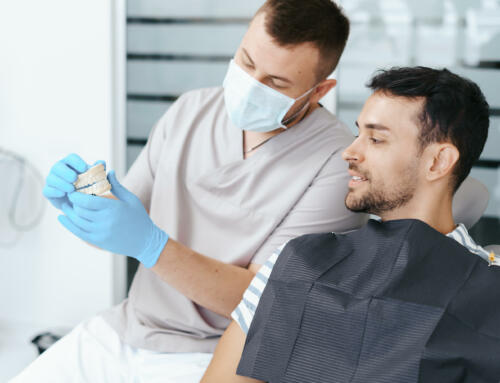
![Hybrid Denture with Titanium Bar [Best Methods + Advantages]](https://stomadentlab.com/wp-content/uploads/2024/01/dental-prosthesis-on-dark-background-2023-11-27-05-06-28-utc-scaled-500x383.jpg)
![The Lucitone Denture Advantage [Best Practices + Advice]](https://stomadentlab.com/wp-content/uploads/2022/08/lucitone-promo-1-500x383.jpg)
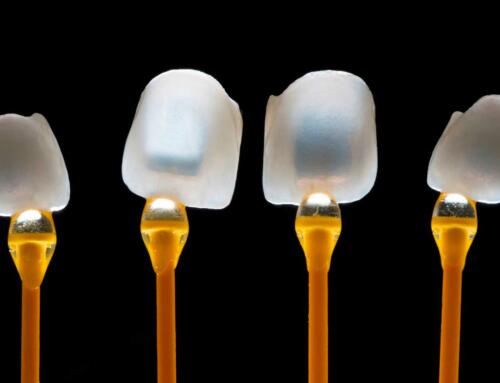
![How to Remove Snap On Dentures [Expert Guidance]](https://stomadentlab.com/wp-content/uploads/2023/12/a-denture-in-a-glass-of-water-dental-prosthesis-c-2023-11-27-04-50-54-utc-scaled-500x383.jpg)

